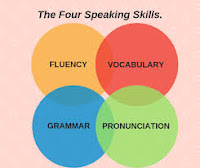How can I become a more eloquent speaker?
How to Speak Eloquently
Introduction
The word "eloquently" originates from the Latin root "eloqui," which means "to speak out" or "to express." It combines "e-" (out) with "loqui" (to speak). The word evolved into the Late Latin "eloquentia," referring to articulate expression, and later entered Middle English as "eloquent."
You can use a variety of synonyms for "eloquently," such as fluently, expressively, gracefully, smoothly, or with clarity. Many people struggle to articulate their thoughts eloquently, which can hinder their ability to communicate effectively. Mastering eloquent speech is essential if you aim to connect deeply with others and leave a lasting impact. Speaking eloquently is a powerful skill that can help you inspire and influence those around you.
How do I learn to speak more eloquently?
Increasing your vocabulary is one of the most important strategies to learn how to talk more fluently. You can choose the most impactful and exact phrases to successfully communicate your ideas if you have a wide and diverse vocabulary. Your vocabulary can grow and your ability to express ideas clearly can be enhanced by reading widely, investigating various genres and authors, and actively learning new terms.
Furthermore, speaking eloquently requires the development of great listening abilities. In addition to improving your understanding of people, active listening makes it possible for you to react intelligently and sympathetically. You may establish rapport and have meaningful talks with people by genuinely listening to them and adapting your comments to suit their viewpoints.
Additionally, getting input from others might help you become a better speaker. To find out where you may improve your delivery, language use, or presenting style overall, ask for helpful feedback from mentors, peers, or communication specialists. Accept criticism as a chance for development and ongoing enhancement.
Tips to Enhance Your Communication Skills
If you recognise that, remember that no one speaks spontaneously with eloquence. It's entirely built via practice, such as working with a communication coach. After all, no one speaks flawless English from birth. These tried-and-true speech improvement strategies will help you become a more eloquent speaker, especially if you're not a native English speaker.
Being able to speak English fluently doesn't need being a native speaker; anyone can do it! Check out the following pointers to improve your English if that's your objective.
Be careful with your enunciation.
When enunciating, one must avoid mumbling or slurring words, as these can distort meaning and lead to confusion. Good enunciation also involves proper breath control, allowing for pauses and emphasis in the right places. This helps convey the tone and emotion behind the message, making it more engaging and persuasive.
In addition to making speech intelligible, enunciation can enhance a speaker's credibility. People are more likely to trust and respect a speaker who articulates their thoughts clearly and confidently. For this reason, enunciation is an important skill for both casual conversations and professional presentations.
Improving enunciation requires practice, attention to detail, and an awareness of one’s speech patterns. Simple exercises, like reading aloud or practicing tongue twisters, can help strengthen these skills over time. Ultimately, clear enunciation fosters better understanding and more effective communication.
To improve enunciation and overall speech clarity, several AI tools can be highly effective in providing real-time feedback and guidance. Here are some of the best AI tools you can use:
1. Eloquens
2. Rosetta Stone
3. VoiceThread
5.
Pronunciation Coach (by SpeechAce)
6.
Google Speech-to-Text
Google's Speech-to-Text API allows you to speak naturally while the AI transcribes your words. It helps you identify areas where your speech may not be accurately recognized, which often points to unclear pronunciation or enunciation. You can practice by repeating difficult words or phrases that the tool struggles with.
7.
Orai
Orai is a speech coaching app that uses AI to analyze your speech and provide real-time feedback on various aspects, including enunciation, clarity, pace, and tone. It's designed for public speaking but can help anyone improve their speech skills.
8.
Speechify
Speechify helps you to listen to and practice reading aloud, improving speech clarity. It uses AI to enhance your practice by giving recommendations based on your tone, cadence, and pronunciation.
When speaking, talk more slowly.
However, generally speaking, speaking more slowly allows the audience to process what you have just said, which leads to more eloquent speech. There is no need for speed when speaking eloquently, regardless of whether you are anxious or simply wanting to maximise your time.
Limit your vocabulary to what you are familiar with.
You can also always focus on expanding your vocabulary at a later time. To avoid confusing your listener, it's preferable to utilise language you're comfortable using when speaking elegantly.
Make the most of your body language.
You can appear more articulate by employing suitable body language, such as posture, eye contact, and hand movements. Your audience will notice that you appear more assured and educated. For instance, you can appear more expressive and interesting to your audience if you use a hand gesture in conjunction with a statement.
For emphasis, employ pauses.
For instance, it could be a good idea to wait for a moment after stating a figure if you're discussing anything that includes data.
Structure Your Thoughts Before Speaking
- Importance of having a logical flow in speech.
- Use the "problem-solution-benefit" framework for persuasive communication.












No comments:
Post a Comment